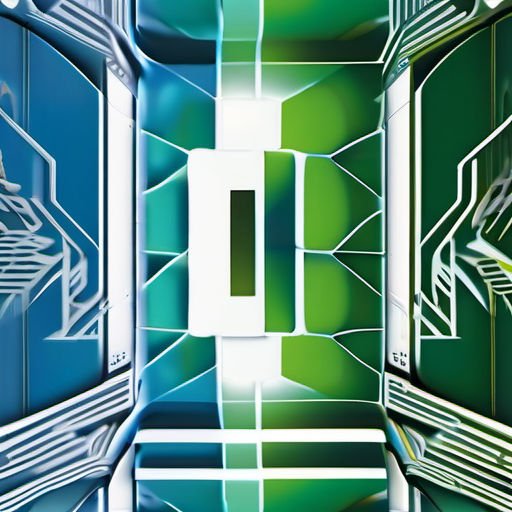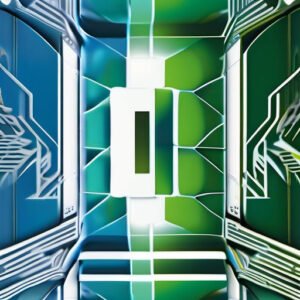How The First Computer Changed Everything In 2025
The Dawn of a New Era in Computer History
The year 2025 marked a pivotal moment in computer history with the advent of the first fully autonomous quantum computer reaching mainstream adoption. This breakthrough did more than just advance technology—it reshaped the fabric of society, industry, and daily life. For decades, computers had evolved steadily, but the innovations introduced in 2025 created an inflection point, altering how humans interact with machines and information. Understanding how the first computer changed everything in 2025 offers valuable insights into the transformation of technology over time and its lasting global impact.
A Quantum Leap: How the First 2025 Computer Differed
Prior to 2025, classical computer architectures had relied primarily on transistors and silicon chips. The first computer that changed everything in 2025 harnessed quantum bits (qubits) to process data exponentially faster and more securely.
Quantum Computing Fundamentals
Quantum computers employ principles of superposition and entanglement, allowing them to perform many calculations simultaneously. Unlike traditional bits, which are binary, qubits can exist in multiple states at once, drastically increasing processing power.
– Ability to solve complex optimization problems
– Enhanced cryptographic security and decryption potential
– Massive parallelism enabling supercharged AI computations
Comparing to Previous Generations
While early computers revolutionized computing during World War II and the space race, their speeds and capabilities were limited. By 2025, the fusion of quantum technology with AI and cloud infrastructure resulted in:
– Near-instantaneous data analysis for industries
– Significant reductions in computational energy consumption
– Breakthroughs in pharmaceutical research and climate modeling
This transition was not merely incremental but transformative, setting a new baseline in computer history.
Transformative Impacts on Industry and Science
The ripple effects of the first computer of 2025 extended beyond technology companies. Various sectors experienced unprecedented breakthroughs, illustrating the profound impact of this milestone.
Healthcare and Pharmaceuticals
Quantum processing accelerated drug discovery by simulating molecular interactions that were previously impossible with classical supercomputers. This led to:
– Faster development of personalized medicine
– Early identification of potential pandemic threats
– More accurate diagnostic tools aided by AI integration
Hospitals and research labs leveraged this power to streamline treatments, reducing time and costs dramatically.
Climate Science and Environmental Research
Modeling the Earth’s complex systems became more precise, enabling scientists to:
– Predict weather patterns and natural disasters with higher accuracy
– Develop sustainable solutions by simulating ecological impacts
– Advise global policymakers using real-time data analysis
These advances played a key role in global environmental strategies moving forward.
Revolutionizing Business and Daily Life
The influence of the 2025 breakthrough permeated everyday life and corporate landscapes, transforming how people work, communicate, and create.
Smart Cities and Infrastructure
With quantum computing enabling real-time data processing, cities optimized traffic flow, energy use, and public safety. Examples include:
– AI-driven public transport scheduling
– Dynamic energy grids responding to consumption patterns
– Enhanced security systems using quantum encryption
These advances made urban environments more efficient, sustainable, and user-friendly.
Work and Communication
Remote work and collaboration tools integrated quantum computing’s fast processing to enable:
– Seamless virtual meetings with real-time language translation
– Instantaneous big data analytics for rapid decision-making
– Superior cybersecurity protecting sensitive communications
By reshaping workflows, the first computer in 2025 redefined productivity standards globally.
Influence on Computer History and Future Trajectories
This milestone carved a clear turning point in computer history, setting new expectations for performance and usability.
Shaping the Next Generation of Technology
The 2025 computer’s capabilities spurred further innovation, including:
– Development of quantum internet infrastructure
– Advancements in machine learning algorithms
– Creation of hybrid quantum-classical computing models
Research institutions and startups alike raced to build upon this foundation.
Education and Workforce Evolution
In response to these changes, educational systems adapted to prepare a quantum-literate workforce by:
– Introducing quantum computing fundamentals into STEM curriculums
– Offering specialized certifications and online courses
– Promoting interdisciplinary research combining computing with ethics and policy
This shift helps ensure society can harness quantum computing’s potential responsibly.
The Broader Societal Impact and Ethical Considerations
The transformative power of the 2025 computer also raised important questions and challenges.
Data Privacy and Security
While quantum encryption strengthens security, quantum decryption threatens existing safeguards. Balancing these forces calls for:
– Development of quantum-resistant cryptography standards
– Regulatory frameworks to protect personal and organizational data
– Ongoing collaboration between governments and tech companies
Understanding these dynamics is crucial for sustained trust in new technologies.
Equity and Accessibility
Ensuring that quantum computing benefits are distributed fairly involves:
– Addressing potential technology divides between regions and socioeconomic groups
– Promoting inclusive policies for access to quantum resources
– Supporting open-source projects and affordable hardware access
These measures help avoid widening digital inequalities after such disruptive advancements.
Exploring More on Computer History
To learn in-depth about the evolution of computing technology leading up to 2025’s breakthrough, explore resources like the Computer History Museum (https://computerhistory.org). This organization offers valuable exhibits and archives that contextualize how the first computer changed everything and paved the way for the future.
Reflecting on the Legacy and Next Steps
The emergence of the first computer in 2025 was a landmark event in computer history with wide-ranging consequences. It accelerated scientific discovery, transformed industries, and set the stage for a new era of technology-driven progress. As we move forward, it is essential to deepen our understanding of quantum computing’s potentials and challenges while fostering innovation that benefits all sectors of society.
Embracing this change means staying informed and engaged with technological trends. Consider exploring quantum computing courses, joining tech forums, or following leading research institutions to remain at the forefront of this evolving landscape. The way the first computer changed everything in 2025 is only the beginning—your involvement shapes what comes next.












Post Comment